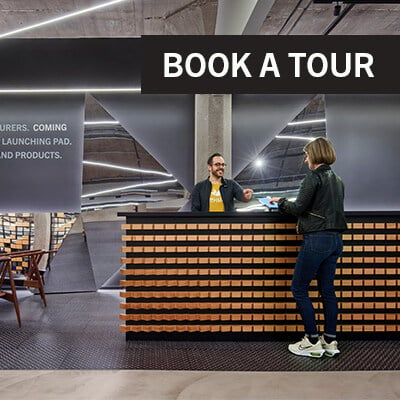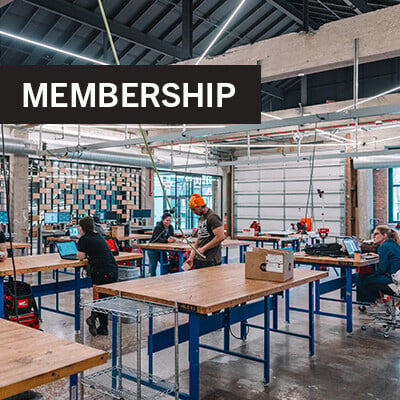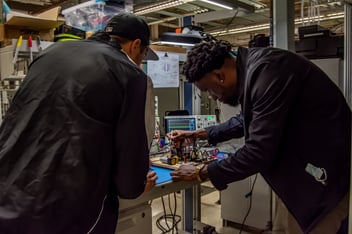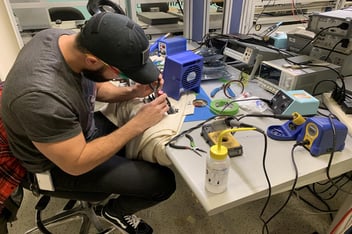As a hardtech startup founder, you’ve probably grown accustomed to running things while wearing multiple hats.
It's not a sustainable way to run a business, so it's important to know what your limits and when you need to start delegating. But who do you delegate to? How do you find the right candidate to bring on board? What if you can’t afford to expand your team yet?
From forming an advisory board to utilizing contract labor—here are some ways you can begin consulting with experts and expanding your team early in your startup journey.
Why You Should Build an Advisory Board and How
Advisors are crucial to any business venture, especially startups.
An Advisory Board is a group of people that contribute their expertise to a company to inform its strategic decision making. An advisor can come from a range of industries and backgrounds. You might already know them; or they might be a stranger you connected with on LinkedIn. Your Advisory Board will probably look different at different mile markers on your startup roadmap.
When your company is pre-seed, especially if you’re deep in the customer discovery stage with only a napkin sketch of your product, you don’t need to prioritize assembling an official Advisory Board. At that stage, your advisors can be friends, family, and peers— people who you can trust to listen to your ramblings and be bouncing boards for your research and ideas (and who will do so for free!).
So, You Have a HardTech Product Idea—Now What?

As you progress in your startup journey, you’ll likely meet people (like a professor or co-worker) that have some useful expertise to share. Once you’ve gathered the low-hanging fruit, research who the experts in your industry are and begin networking. Attend events and workshops, join virtual groups and forums, start posting on LinkedIn.
The goal is to have enough social capital and credibility that if you reach out to a contact and offer them a seat on your Advisory Board, they'll be inclined to agree.
The best Advisory Boards have a diverse, well-rounded mix of leaders, engineers, and entrepreneurs who are willing to share their resources with you.
The further you get towards commercialization, the more refined your board should be. You want people you have a mutual respect with, who can look at you without rose-tinted glasses. It’s their brutal honesty that will steer you clear of any major roadblocks ahead.
After you’ve completed your market research, prototyping, and have your MVP, you might consider offering equity/funding to prospective advisors.
Advisory Boards are great in the early stages, but they’re even better when you start fundraising. Investors will look at your board to see what reputable people are associated with your venture. Take advantage of the free advice as long as you can but know that by investing in your advisors, you make investors more inclined to invest in you.
The Pros and Cons of Contracting
Contract labor is a great resource for startup founders at any product development stage.
If you’re too early-stage or simply don’t have the funds to hire a full-time employee, contract labor might be a viable alternative. There’s a surplus of freelancers and contractors out there looking for work, so it’s mutually beneficial if you can find someone whose skill set and availability aligns with your business needs.
How to Hire for Contract Manufacturing
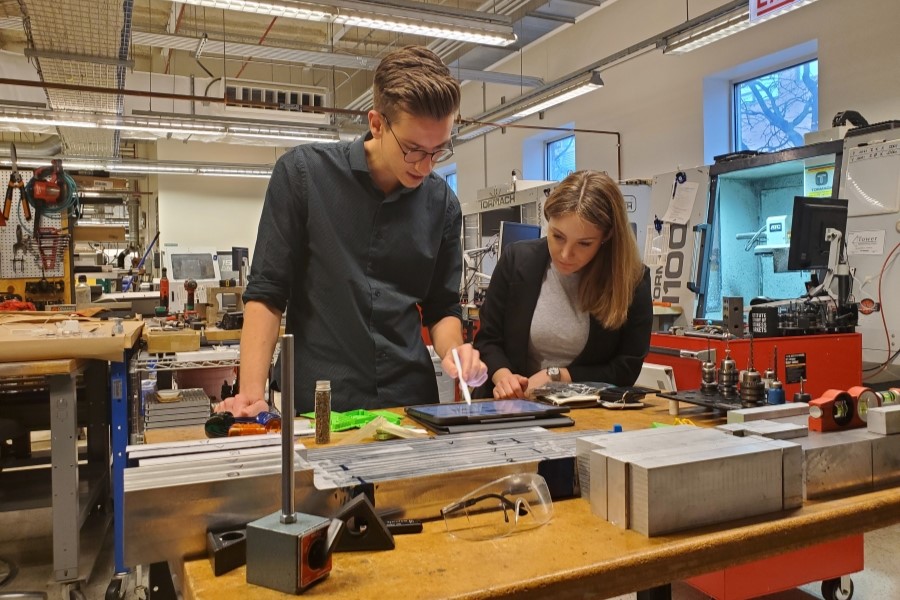
This being said, sourcing work through contract labor has its pros and cons.
Pros:
- Short-term investment. You might not need or have enough work yet for a full-time employee. And if you’re still working out the kinks of your business plan, or a contractor isn’t a good fit, then they have a predetermined end date.
- Vetting candidates for future roles. For some, contract roles are trial runs. In the scenario where you find a contractor who’s a great fit at your company, they may be interested in a larger role (as a salaried employee or just a long-term contract) when your startup is more established and/or funded.
- Revolving door of talent. Just like any employee, a contractor is another contact in your growing network. If you can build a good rapport with them, they might recommend or introduce you to other contractors they can vouch for.
Cons:
- Task-oriented rather than mission-oriented. Even the best contractor is not going to have the level of commitment to your startup you might be looking for or need. Since you’re the client, they’ll do their best to appease you, but when the contract is fulfilled, they’re onto the next thing. While you must respect the hustle, there are some tasks that require a mission-oriented person to complete them.
- Wasted time. A contractor could have great ideas and be self-sufficient, but because they’re coming in with little to no context about your business and brand, you might find yourself spending more time explaining a project and outlining expectations than you would if you had a full-timer with pre-established knowledge.
- Employee vs. Contractor paradigm. There is a different dynamic when you’re the client rather than the boss. If you have a specific vision and veer on the side of micromanagement, you might not mesh with some contractors and could risk wasting money and resources if the output doesn’t align with your expectations.
Even when you have built out your startup and have full time employees on board, there will still be areas where contract labor is a better option.
Maybe you don’t need a design team yet, so you contract a graphic designer from time to time to update your company’s visual materials. Maybe you want another set of eyes on a project, so you bring in a consultant. The greater message here is that above all else, you need to be in tune with, and realistic about, you and your company’s strengths and weaknesses. Identify what they are throughout your product development journey to determine what roles you prioritize hiring for.
Fundraise those roles and be prepared to invest time and money to recruit the right candidate. Don’t put your blinders up and put off expanding your team because you think you can do it all on your own. If bringing on a full-timer for a certain role doesn’t feel right yet, then look into hiring contractors, or see if it’s a problem that could be resolved by consulting with your Advisory Board.
Teamwork Makes the Dream Work
It’s rare, if not impossible, for a business to succeed with only one entrepreneur contributing. If your product is truly disruptive and innovative, give it the best shot at successfully going to market by finding the experts and teammates who will help you get it there.

Take the time to build a team of experts that provide the skills and resources you need to bring your product to market. From finance, to legal, to marketing, there are many roles that are critical to your startup's success. Find the people who can fill those roles and help you build a strong foundation for your business.
Don't be afraid to ask for help. There is a lot of talent out there, and the right people will help you take your startup to the next level.
Based in or around Chicago? Check out mHUB's membership options, book a tour, or register for one of many mHUB classes on product development.
